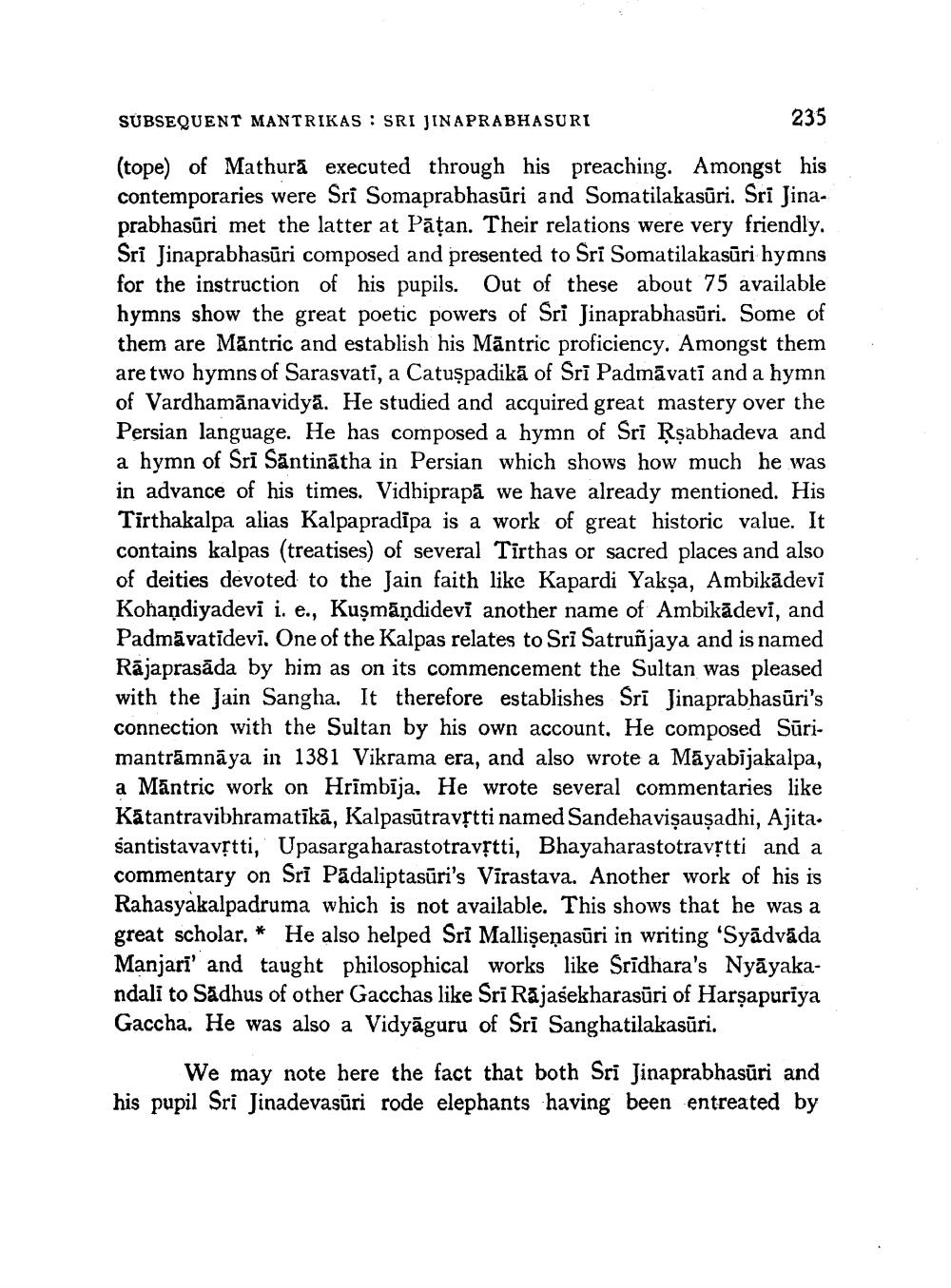________________
SUBSEQUENT MANTRIKAS: SRI JINAPRABHASURI
235
(tope) of Mathura executed through his preaching. Amongst his contemporaries were Sri Somaprabhasūri and Somatilakasūri. Sri Jinaprabhasūri met the latter at Pāțan. Their relations were very friendly, Sri Jinaprabhasūri composed and presented to Sri Somatilakasūri hymns for the instruction of his pupils. Out of these about 75 available hymns show the great poetic powers of Sri Jinaprabhasūri. Some of them are Mantric and establish his Māntric proficiency. Amongst them are two hymns of Sarasvati, a Catuşpadikā of Sri Padmāvati and a hymn of Vardhamānavidyā. He studied and acquired great mastery over the Persian language. He has composed a hymn of Sri Rşabhadeva and a hymn of Sri Sāntinātha in Persian which shows how much he was in advance of his times. Vidhiprapā we have already mentioned. His Tirthakalpa alias Kalpapradipa is a work of great historic value. It contains kalpas (treatises) of several Tirthas or sacred places and also of deities devoted to the Jain faith like Kapardi Yakşa, Ambikādevi Kohandiyadevi i. e., Kuşmāņdidevi another name of Ambikādevi, and Padmāvatidevi. One of the Kalpas relates to Sri Satruñjaya and is named Rājaprasāda by him as on its commencement the Sultan was pleased with the Jain Sangha. It therefore establishes Sri Jinaprabhasūri's connection with the Sultan by his own account. He composed Sūrimantramnāya in 1381 Vikrama era, and also wrote a Māyabijakalpa, a Mantric work on Hrimbīja. He wrote several commentaries like Katantravibhramatīkā, Kalpasūtravrtti named Sandehavişausadhi, Ajita. santistavavštti, Upasargaharastotravịtti, Bhayaharastotravștti and a commentary on Sri Padaliptasūri's Virastava. Another work of his is Rahasyakalpadruma which is not available. This shows that he was a great scholar. * He also helped Sri Mallişeņasūri in writing 'Syādvāda Manjari' and taught philosophical works like Sridhara's Nyāyakandali to Sädhus of other Gacchas like Sri Rajasekharasūri of Harsapuriya Gaccha. He was also a Vidyāguru of Sri Sanghatilakasūri.
We may note here the fact that both Sri Jinaprabhasūri and his pupil Sri Jinadevasūri rode elephants having been entreated by




